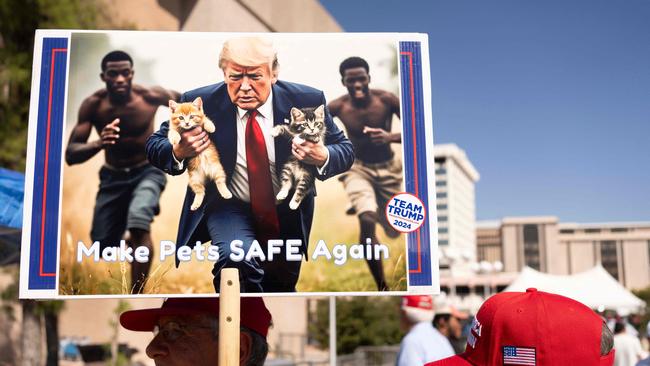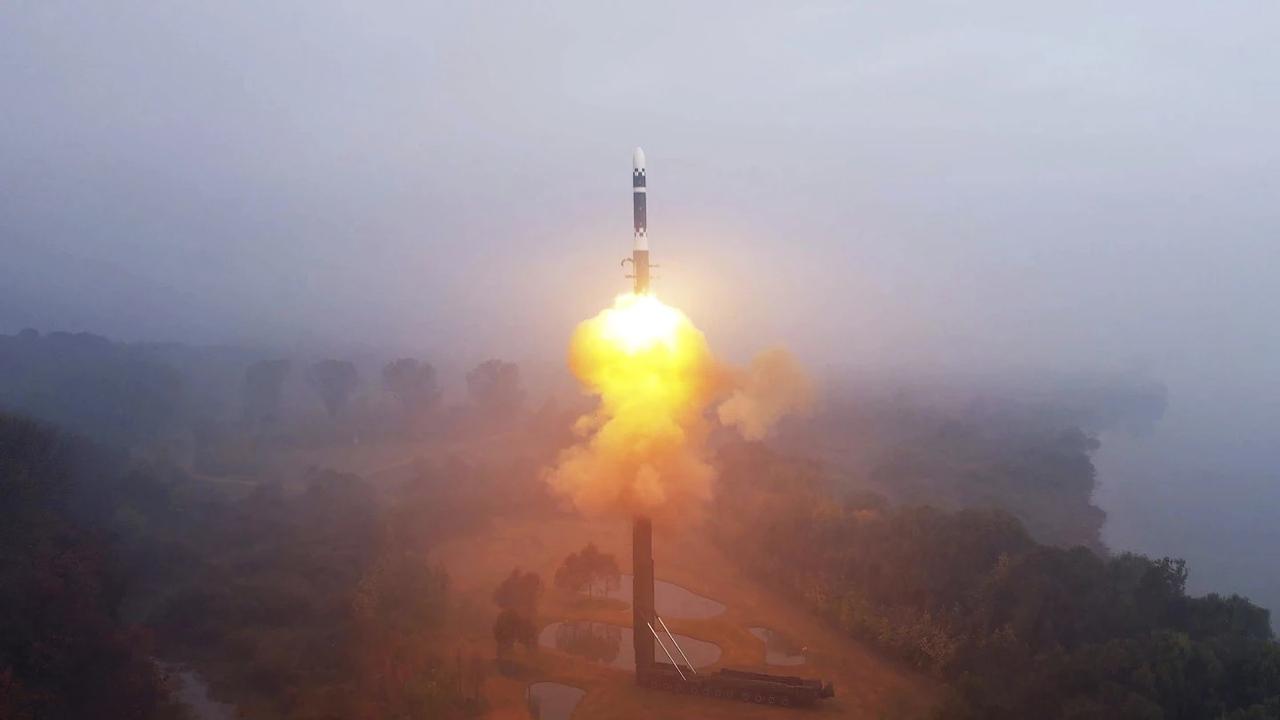US far right has gone quiet, but is ready for post-election violence
Intelligence agencies warn radicalised extremists pose a serious threat of widespread violence from now until inauguration day if Trump loses.

Far-right extremist groups have been laying the groundwork for post-election violence in America by exploiting local grievances and sowing division to swell their ranks, experts are warning.
US intelligence agencies have said domestic extremists radicalised by online conspiracy theories pose a significant threat from now until inauguration day.
The Global Project Against Hate and Extremism reported increases in election-related violent rhetoric online this week, comparable with the same period in 2020.
This week, ballot boxes were set on fire in Oregon and Washington. While the motive remains unknown, it underscored the potential for political divisions to descend into violence around the election on Tuesday.
Many extremist groups have been playing the long game, cloaking their intentions while quietly building a support base poised to unleash unrest should the election result be contested.
“They’re not going in saying, ‘hey, we’re neo-Nazis’,” said Jon Lewis, research fellow at the Program on Extremism at George Washington University. “They’re saying, ‘we’re trying to help the local community’. They’re trying to gain legitimacy, to gain respect, to then further radicalise, further recruit, and build their ranks.”
A closer look at the recent tactics of far-right groups in Ohio and in the states recently hit by hurricanes paints a picture of a movement increasingly adept at identifying and exploiting local grievances to swell their ranks and boost their messaging.
The myriad far-right groups operating across America have divergent goals: some, like the Proud Boys, openly support Donald Trump; white nationalist accelerationist groups want societal collapse; neo-Nazi groups like Blood Tribe aim to create white ethno-nationalist states.
While their aims diverge, their methods for getting there are consistent – stoking unrest and violence to destabilise society.
But the aftermath of January 6 showed the dangers of overt political agitation, so many groups switched to small-scale actions like picketing LGBTQI events in communities where they felt their message could have resonance.
Paul Becker, a professor of sociology at the University of Dayton, Ohio, said his state – where there is a significant population of white working-class men alienated by the collapse of manufacturing and increased migration – was fertile recruiting ground.
“When they see individuals that might feel like they’re being left behind economically or socially, they are always potential targets for recruitment,” Professor Becker said.
Proud Boys, Blood Tribe and other extremist groups have been disrupting drag queen story hours and similar events in Ohio since 2020. They quickly picked up on escalating tensions in Springfield, Ohio, after the arrival of people from Haiti. On August 10, Blood Tribe members marched through Springfield carrying swastikas. The Proud Boys marched through town in early September.
It was a week later, on September 10, that Mr Trump used the televised debate against Kamala Harris to claim migrants in Springfield were “eating the pets of the people that live there”, amplifying a message a neo-Nazi group helped to spread. Blood Tribe leader Christopher Pohlhaus took that to be validation of their strategy.
This focus on the local level makes their activity harder to track. “The most concerning aspect is these grievances that these small, hyper local cells of extremist groups are responding to are getting widespread appeal and massive traction,” Dr Lewis said.
Researchers are concerned the storms have come in an election campaign that has already featured two attempts on Mr Trump’s life, record threats against election workers, and increasing signs from the Trump campaign that he may not accept the result.
“When the temperature is pushed so high, stuff will start to burn,” said Dr Lewis.
The Times


